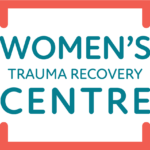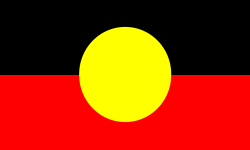
The message is loud and clear from the University of Wollongong. Picture supplied
Every woman lost is one too many
Every day, in Australia and other parts of the world, the sun rises to the news of women’s lives taken by gender-based violence, often perpetrated by their intimate partner or someone close to them. And behind each statistic lies a heartbreaking truth: with every life taken, we lose not just a number but someone’s daughter, mother, wife, sister or a friend, someone’s teacher, an inspiring researcher, a potential inventor or an engaged community healer.
At the University of Wollongong (UOW), we not only recognise the urgent need for action, but we’re proactively creating measures, tools and resources to address the scourge of violence against women. We also see universities as a powerful force in empowering women, addressing racism and tackling gender-based norms.
Combating this issue demands a comprehensive and coordinated approach, one that encompasses education, prevention, support services and policy reforms alongside collaborative partnerships with community organisations and health providers. And we cannot do it without female champions and women’s advocates from across the University and our community.
One such woman is Sally Stevenson AM, a local beacon of resilience and compassion who has dedicated her life to supporting women affected by domestic and family violence. Sally has been the Executive Director of the Illawarra Women’s Health Centre for the past nine years while leading the national campaign to establish the Women’s Trauma Recovery Centre, an Australian-first, long-term support Centre for women who have experienced domestic, family and sexual violence. With a vision of an 80 per cent reduction in the epidemic of gender-based crime, Sally continues to urge all advocates to stay persistent and relentless in the collective quest to overturn the status quo.
As a research-based institution, UOW strongly advocates for data-driven approaches that guide policy and program decisions. Professor Julia Quilter, our foremost authority on criminal law and justice, is deeply committed to providing impactful insights into the challenges encountered by victim-survivors within the criminal justice system. Her internationally renowned research on sexual assault law reform highlights persistent myths and stereotypes that prevail in sexual assault trials.
Yet UOW’s commitment to addressing gender-based violence extends beyond research and advocacy. As a higher education institution, our largest audience and biggest responsibility is our students and staff. We know that we must engage them as trusted partners and empower student organisations and leaders to take an active role in promoting a culture of respect and accountability.
Many projects and efforts are already in place. Through the great work of the Safe and Respectful Communities‘ (SARC) team and UOW’s Chief Integrity Officer, Professor Trish Mundy, we’re educating our students and staff community about ways to support victim-survivors, raise awareness and challenge harmful norms. Even though the findings of the National Student Safety Survey served us grim numbers, we know it also meant that we have created safe reporting avenues and a strong support and vigilance system for students.
One facet of this work was the introduction of UOW’s Consent Matters, a compulsory online module on consent, and several training options for staff, including ‘first-level responder training’, which covers how to respond to disclosures and where to refer students. UOW is also part of the Greater Cities Commission’s Women’s Safety Charter, which works towards creating safer public spaces for women, girls and gender-diverse people. We participate in this cause by improving student safety on and off campus, including offering educational projects like Set the Bar, a free training for hospitality staff on how to recognise, report and call out undesirable behaviour or Respect in Motion, which teaches strategies of safe bystander intervention. For more information about the work we are doing at UOW to prevent gender-based violence, you can check the SARC Annual Report.
As we have seen around the nation over recent weeks, the time for action is now, and UOW is part of this groundswell. We have some evidence of incremental progress but we still have a long way to go. We can and must make a difference to ensure a safer future for women and girls and UOW is proud to be part of this change.
Professor Patricia M. Davidson, Vice-Chancellor and President of the University of Wollongong.



